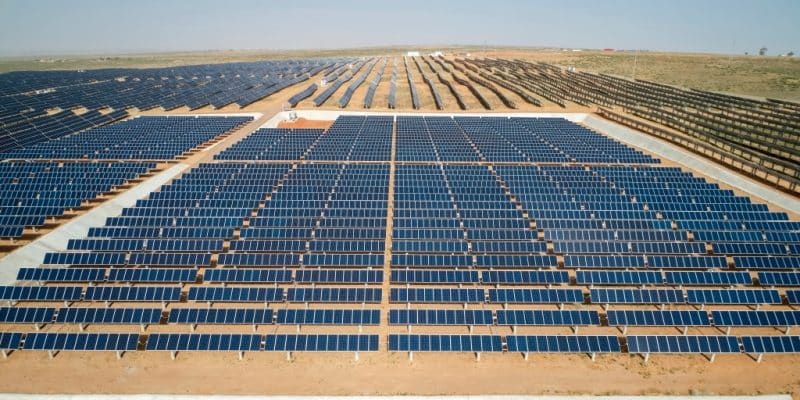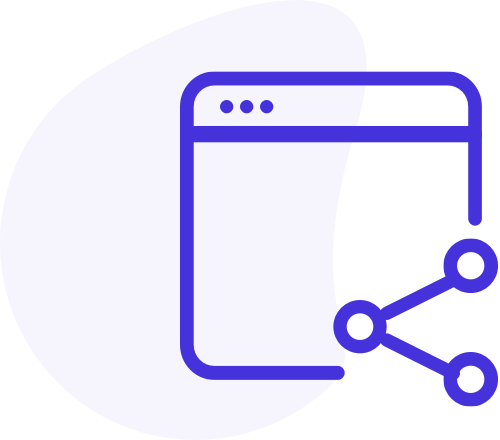Solar IPP (Independent Power Producer)
A Solar IPP (Independent Power Producer) service involves the development, operation, and maintenance of large-scale solar energy projects that generate electricity for the power grid. These services are provided by independent companies known as IPPs.
Solar IPP (Independent Power Producer)

Solar IPP (Independent Power Producer) or utility projects involve large-scale solar energy installations specifically designed to generate electricity for integration into the power grid. These projects are developed and operated by independent companies, known as IPPs, which are responsible for producing and selling the generated electricity to utility companies or other power purchasers, often through long-term power purchase agreements (PPAs).
In these solar IPP or utility projects, the solar arrays are typically installed in expansive open areas, such as large fields, vacant land, or even desert regions, as opposed to residential or commercial rooftops. This approach allows for the installation of numerous solar panels, maximizing energy production. These projects can vary significantly in size, ranging from a few megawatts to several hundred megawatts, depending on the available land and the specific energy needs of the region.
The role of solar IPP and utility projects is crucial in the global transition to clean and renewable energy sources. By harnessing the power of the sun, these projects contribute to reducing dependence on fossil fuels, decreasing greenhouse gas emissions, and promoting sustainable energy practices. Additionally, they provide a reliable and scalable solution for meeting the growing energy demands of modern societies, supporting the goal of achieving a greener and more sustainable future.
ECOrepono Solar IPP Service

Project Development
- Site Selection and Assessment: Identifying and evaluating suitable land for solar installations.
- Feasibility Studies: Conducting technical and financial feasibility analyses to ensure the viability of the project.
- Permitting and Compliance: Obtaining necessary permits and ensuring compliance with local, regional, and national regulations.

Design and Engineering
- System Design: Creating detailed plans for the solar array layout, electrical infrastructure, and interconnection with the grid.
- Engineering Solutions: Developing engineering solutions to optimize the performance and efficiency of the solar project.

Financing
- Capital Investment: Securing the necessary funding for the development and construction of the project.
- Financial Structuring: Structuring the project’s finances to attract investment and ensure long-term profitability.

Construction and Installation
- Procurement: Sourcing high-quality solar panels, inverters, and other essential components.
- Construction Management: Overseeing the construction process to ensure timely and efficient project completion.
- Installation: Installing the solar panels and electrical systems according to the design specifications.

Operations and Maintenance (O&M)
- Monitoring: Continuously monitoring the performance of the solar installation to ensure optimal operation.
- Maintenance: Conducting regular maintenance to prevent and address any issues that may arise, ensuring the longevity and efficiency of the system.

Power Sales
- Power Purchase Agreements (PPAs): Establishing long-term agreements with utility companies or other power purchasers to sell the electricity generated by the solar project.
- Energy Trading: Engaging in the sale and trading of electricity in energy markets.

Environmental and Social Responsibility
- Sustainability: Ensuring that the project contributes to environmental sustainability by reducing carbon emissions and promoting the use of renewable energy.
- Community Engagement: Engaging with local communities to ensure the project provides benefits and addresses any concerns.

Grid Integration
- Interconnection Services: Managing the process of connecting the solar power plant to the local or national grid, ensuring compliance with technical standards and regulatory requirements.
- Grid Stability and Management: Implementing technologies and practices to maintain grid stability and manage the variability of solar power generation. This may include energy storage solutions, smart inverters, and grid-support services.

Data Analytics and Reporting
- Performance Analytics: Utilizing advanced data analytics to monitor and analyze the performance of the solar installation. This includes tracking energy production, identifying trends, and optimizing operations.
- Reporting: Providing detailed reports to stakeholders, including investors, utility companies, and regulatory bodies. These reports cover key performance indicators, financial performance, environmental impact, and compliance with regulatory requirements.
- Predictive Maintenance: Using data analytics to predict potential issues before they occur, allowing for proactive maintenance and reducing downtime.
The Key Benefits of IPP Service
Increased Access to Renewable Energy
- Large-Scale Deployment: IPPs develop and operate large-scale solar projects that significantly contribute to the generation of renewable energy, helping to reduce reliance on fossil fuels and lower greenhouse gas emissions.
- Grid Integration: By connecting solar installations to the power grid, IPPs ensure that renewable energy is accessible to a wide range of consumers, supporting the transition to a more sustainable energy infrastructure.
Financial Efficiency and Risk Management
- Investment and Financing: IPPs secure the necessary capital for solar projects through various financing mechanisms, reducing the financial burden on utility companies and other power purchasers. This financial structuring attracts investment and ensures long-term profitability.
- Power Purchase Agreements (PPAs): By establishing long-term PPAs, IPPs provide stable and predictable revenue streams for their projects, mitigating financial risks and ensuring consistent cash flow for both the IPP and the power purchasers.
Expertise and Operational Excellence
- Technical Expertise: IPPs bring specialized knowledge and experience in designing, constructing, and operating large-scale solar projects. This expertise ensures that the projects are efficient, reliable, and compliant with all regulatory requirements.
- Operations and Maintenance (O&M): IPPs provide comprehensive O&M services, including regular maintenance, performance monitoring, and troubleshooting, which maximize the efficiency and lifespan of the solar installations. This results in lower operational costs and higher energy production over the long term.




